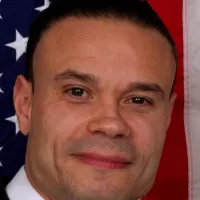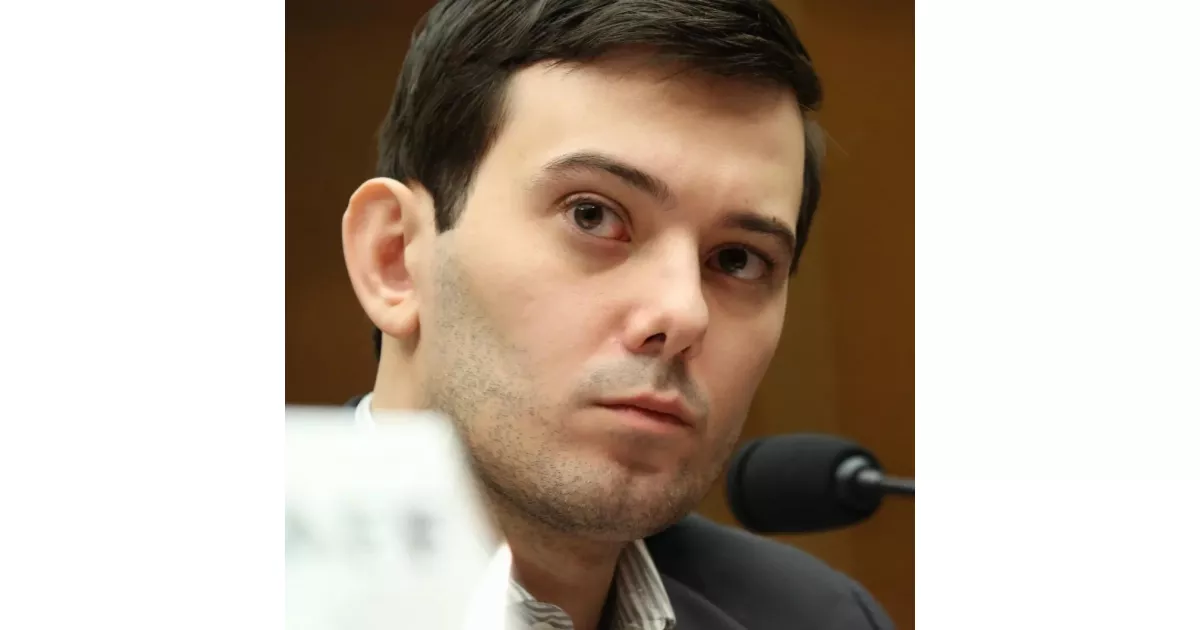Martin Shkreli is a former American entrepreneur and investor known for his controversial actions in the pharmaceutical industry. As the CEO of Turing Pharmaceuticals, he gained notoriety for significantly increasing the price of a life-saving drug. He was later convicted of financial crimes unrelated to the drug pricing controversy and served a prison sentence. Before his legal troubles, Shkreli founded several companies, including hedge funds and a software company.
1953: FDA approves Daraprim
Daraprim, a medication, received approval from the FDA in 1953.
March 17, 1983: Birth of Martin Shkreli
Martin Shkreli was born on March 17, 1983, in Coney Island Hospital, Brooklyn, New York City.
2004: Shkreli Graduates Baruch College
Martin Shkreli earned his bachelor's degree in business administration from Baruch College in 2004.
2006: Shkreli Founds Elea Capital Management
Martin Shkreli established his first hedge fund, Elea Capital Management, in 2006.
October 2007: Lehman Brothers Wins Default Judgment Against Shkreli
In October 2007, Lehman Brothers won a $2.3 million default judgment against Shkreli and his hedge fund, Elea Capital Management, for failing to cover a 'put option transaction'. However, Lehman Brothers collapsed before they could collect the money.
September 2009: Shkreli Co-founds MSMB Capital Management
In September 2009, Shkreli, alongside his childhood friend Marek Biestek, co-founded MSMB Capital Management, a hedge fund named using their initials. The fund focused on shorting biotech companies while publicly criticizing them in stock trading chat rooms.
2009: Beginning of Securities Law Violations
This entry marks the beginning year, 2009, of Martin Shkreli's involvement in securities law violations, which ultimately led to a $1.39 million fine and a lifetime ban from holding leadership positions in publicly traded companies. These violations continued until 2014.
February 1, 2011: MSMB Capital Suffers Significant Loss from Orexigen Therapeutics Short Sale
On February 1, 2011, MSMB Capital, under Shkreli's management, executed a naked short sale of 32 million shares of Orexigen Therapeutics. This occurred after the FDA's rejection of the drug Contrave caused Orexigen's stock to plummet. However, the stock price rebounded, and MSMB was unable to cover its position, resulting in a $7 million loss for Merrill Lynch, who held the account, and nearly bankrupting MSMB Capital.
2011: Shkreli Founds Retrophin
In 2011, Shkreli established Retrophin, a biotechnology company focused on developing treatments for rare diseases. The company's name is a portmanteau of "Recombinant dystrophin."
2011: Shkreli's Short-Selling Controversies
In 2011, Shkreli took aim at Navidea Biopharmaceuticals and MannKind Corporation, filing requests with the FDA to reject their respective products while simultaneously short-selling their stocks. These interventions caused the companies' stock values to drop and created difficulties in launching their products, even though the FDA eventually approved both.
2011: Unsuccessful Hostile Takeover Attempt of AMAG Pharmaceuticals
Shkreli, through MSMB, launched an unsolicited cash bid to take over AMAG Pharmaceuticals for $378 million in 2011. This move was seen as an attempt to halt AMAG's proposed merger with Allos Therapeutics. The hostile takeover failed when the merger plans were abandoned.
October 2012: Aselage Joins Retrophin
Stephen Aselage joined Retrophin, hired by Shkreli, in October 2012.
November 2013: Shkreli Named to Forbes 30 Under 30
In a move they would later regret, Forbes included Shkreli in their prestigious "30 Under 30" list in November 2013. The publication would later place Shkreli on their "Hall of Shame," a list of their worst picks, ten years later.
May 2014: Interest in eSports and Offer to Enemy eSports
In May 2014, Martin Shkreli, an avid League of Legends player, expressed interest in acquiring an eSports team. He made an offer of US$1.2 million to Enemy eSports, which was ultimately rejected.
May 2014: Shkreli secures funding and acquires rights to market tiopronin and Chenodal
In May 2014, despite facing challenges in accessing public markets for capital, Shkreli successfully secured a $4 million series A funding round and a $10 million PIPE deal. This funding enabled him to acquire the rights to market tiopronin (Thiola) and Chenodal. Shortly after, he significantly raised the prices of both drugs, with Thiola's price increasing by 20 times, drawing criticism for making essential medications unaffordable.
September 2014: Shkreli Ousted from Retrophin
Retrophin's board of directors made the decision to remove Shkreli from his position as CEO in September 2014, and he resigned the following month. During his time as CEO, Shkreli's employees, allegedly at his direction, used fake Twitter accounts to manipulate stock prices and make light of their actions.
2014: Aselage Replaces Shkreli at Retrophin
Following Shkreli's ousting from Retrophin, Stephen Aselage stepped in to replace him as CEO in 2014.
2014: End of Securities Law Violations
This entry marks the end year, 2014, of Martin Shkreli's involvement in securities law violations, which ultimately led to a $1.39 million fine and a lifetime ban from holding leadership positions in publicly traded companies. These violations began in 2009.
January 2015: Shkreli Under Criminal Investigation
The U.S. Attorney for the Eastern District of New York opened a criminal investigation into Shkreli and his business practices in January 2015. During civil depositions for this case, Shkreli invoked his Fifth Amendment right against self-incrimination to avoid providing testimony.
February 2015: Shkreli founds Turing Pharmaceuticals and sets a controversial business strategy
In February 2015, Shkreli established Turing Pharmaceuticals, acquiring three drugs in development. His business strategy focused on obtaining licenses for existing, out-of-patent medications and then significantly increasing their prices. This approach aimed to capitalize on limited competition and generate substantial profits without the need for drug development.
June 2015: Impax implements controlled distribution of Daraprim
In June 2015, two months before Turing Pharmaceuticals publicly announced its acquisition of Daraprim, Impax Laboratories transitioned to a tightly controlled distribution system for the drug. This move, made as part of the deal with Turing, limited the drug's availability and paved the way for Turing to implement a significant price increase.
August 10, 2015: Turing Pharmaceuticals acquires Daraprim
On August 10, 2015, Turing Pharmaceuticals, under Shkreli's leadership, acquired Daraprim, a medication used to treat toxoplasmosis, from Impax Laboratories for US$55 million. This acquisition would later become central to the controversies surrounding Shkreli's business practices.
August 2015: Retrophin Sues Shkreli for $65 Million
Retrophin filed a lawsuit against Shkreli for $65 million in August 2015, alleging that he misused company funds, engaged in stock manipulation, and harassed a former employee and their family.
August 2015: Founding of Odyssey eSports and Merger into Team Imagine
After his initial offer to purchase an eSports team was rejected, Shkreli founded his own team, Odyssey eSports, in an attempt to qualify for the 2015 North American League of Legends Challenger Series. However, the team was unsuccessful. In August 2015, Odyssey merged with another team to form Team Imagine, with Shkreli assuming the role of chairman. As part of the merger, Team Imagine signed the Dota 2 team Leviathan.
September 2015: Turing Pharmaceuticals and Daraprim Price Hike
In September 2015, Shkreli's company, Turing Pharmaceuticals, acquired the manufacturing license for the drug Daraprim. Turing significantly increased the price of the drug from $13.50 to $750.00 per pill, leading to widespread criticism.
September 2015: Turing hires lobbyists and a crisis PR firm
In September 2015, facing intense scrutiny and political pressure over the Daraprim price hike, Turing Pharmaceuticals hired four lobbyists with expertise in healthcare legislation and pharmaceutical pricing. The company also engaged a crisis public relations firm to manage the negative publicity and shape the narrative surrounding its pricing decisions.
September 2015: Shkreli defends Daraprim price hike
In September 2015, in response to the mounting criticism over the Daraprim price increase, Shkreli publicly defended the move. He argued that patient co-pays would actually decrease due to various programs, including expanded free drug access. However, his justifications were widely perceived as insensitive and failed to quell the public outcry.
September 17, 2015: Price of Daraprim increases by 5,500%
On September 17, 2015, Turing Pharmaceuticals, led by Shkreli, dramatically increased the price of Daraprim from US$13.50 to US$750 per pill, representing a staggering 5,500% increase. This move sparked widespread outrage and ignited a national debate about drug pricing and corporate greed.
October 22, 2015: Imprimis Pharmaceuticals announces a $1 alternative to Daraprim
On October 22, 2015, Mark L. Baum, CEO of Imprimis Pharmaceuticals, announced that his company would provide an affordable alternative to Daraprim, pricing their combination product containing pyrimethamine and leucovorin at just $1 per pill. This move aimed to directly compete with Turing and provide a more accessible treatment option for patients.
November 2015: Shkreli Acquires KaloBios Pharmaceuticals
In November 2015, Shkreli led an investor group to acquire a majority stake in KaloBios Pharmaceuticals, a biopharmaceutical company. He was appointed as CEO, while also planning to retain his CEO position at Turing Pharmaceuticals.
November 23, 2015: Turing announces volume discounts but no list price reduction for Daraprim
On November 23, 2015, Turing Pharmaceuticals announced that it would not lower the list price of Daraprim, despite widespread criticism. Instead, the company proposed negotiating volume discounts with hospitals, arguing that this approach would effectively reduce costs for most patients. However, this decision failed to appease critics who viewed it as an inadequate response to the concerns about the drug's affordability.
November 24, 2015: Purchase of Wu-Tang Clan Album
On November 24, 2015, Martin Shkreli successfully won an auction for the Wu-Tang Clan album "Once Upon a Time in Shaolin." The unique, single-copy album was sold through Paddle8 for US$2 million.
December 2015: Medical and patient organizations call for Daraprim price reduction
By December 2015, the backlash against Turing Pharmaceuticals' price hike of Daraprim intensified, with over 160 medical specialty and patient organizations joining forces to demand a price reduction. These organizations advocated for patient needs and criticized the company for making the life-saving drug unaffordable.
December 2015: Shkreli Removed as CEO of KaloBios
Following his arrest in December 2015, Shkreli was terminated from his position as CEO of KaloBios Pharmaceuticals.
December 17, 2015: Shkreli Arrested on Securities Fraud Charges
On December 17, 2015, the FBI arrested Shkreli following a federal indictment in the U.S. District Court for the Eastern District of New York. He was charged with securities fraud related to his time at MSMB Capital Management and Retrophin. U.S. Attorney Robert Capers accused Shkreli of running his companies like a Ponzi scheme.
December 29, 2015: KaloBios Pharmaceuticals Files for Bankruptcy
On December 29, 2015, shortly after Shkreli's arrest and subsequent removal as CEO, KaloBios Pharmaceuticals filed for Chapter 11 bankruptcy. This followed the delisting of its shares from NASDAQ and the resignation of two directors.
2015: Retrophin Files SEC Complaint Against Shkreli
In 2015, Retrophin filed a complaint with the Securities and Exchange Commission (SEC) alleging that Shkreli created MSMB Healthcare and Retrophin to continue trading after MSMB Capital went insolvent. The complaint alleged that these new entities were intended to appease MSMB Capital investors.
2015: Shkreli Purchases Wu-Tang Clan and Lil Wayne Albums
In 2015, Shkreli made headlines for purchasing the sole copy of the Wu-Tang Clan album "Once Upon a Time in Shaolin" for around $2 million. He also acquired the then-unreleased Lil Wayne album "Tha Carter V." These acquisitions later became part of his asset forfeiture.
2015: Arrest and Reported Net Worth
This entry marks the year of Martin Shkreli's arrest, 2015, following which he reported his net worth to be $70 million.
2015: Christie Smythe Breaks News of Shkreli's Arrest
This entry marks the year when Christie Smythe, who would later become romantically involved with Martin Shkreli, broke the news of his arrest.
January 2016: Net Worth Estimation and Bail
In January 2016, Fortune magazine estimated Martin Shkreli's net worth to be at least $45 million. However, Fortune later revised its estimation, acknowledging a significant decrease in Shkreli's E-Trade account value, which dropped by over $40 million. Shkreli had used a $4 million E-Trade account to secure his bail.
February 4, 2016: Shkreli Testifies Before House Committee
On February 4, 2016, Shkreli appeared before the House committee to address issues related to drug pricing. He was joined by Nancy Retzlaff, Turing's Chief Commercial Officer, and Howard B. Schiller, Valeant's interim CEO.
August 2016: Shkreli Founds Gödel Systems
In August 2016, Martin Shkreli founded Gödel Systems, a start-up software company.
October 2016: Promise to Release or Destroy Album Based on Election Results
In October 2016, Martin Shkreli, who had previously purchased the sole copy of the Wu-Tang Clan album "Once Upon a Time in Shaolin," took to Twitter to declare that he would release the album for free if Donald Trump won the 2016 United States presidential election. Conversely, he stated that he would destroy the album if Hillary Clinton emerged victorious. Following Trump's victory, he shared the album's intro and one track online.
December 2016: Tax Warrant and Asset Auction
In December 2016, the New York State Department of Taxation and Finance issued a $1.26 million tax warrant against Shkreli for unpaid taxes. Shkreli made partial payments, and the State recovered an additional $134,500 through the auctioning of his seized assets. These assets included an Enigma machine, a manuscript signed by Isaac Newton, and letters from Charles Darwin and Ada Lovelace.
2016: Imprimis Pharmaceuticals introduces a lower-cost alternative to Thiola
In 2016, Imprimis Pharmaceuticals launched a more affordable version of Thiola, providing relief to patients who were struggling with the high prices set by Shkreli's company.
2016: Shkreli Hires Benjamin Brafman for Defense
In early 2016, Shkreli hired prominent defense attorney Benjamin Brafman to represent him in his legal battles. The case proved challenging due to Shkreli's negative public image and the need to find an impartial jury.
January 2017: Gödel Systems Raises Funds Through Debt Offering
In January 2017, Gödel Systems began issuing debt to raise capital, successfully securing $50,000 towards their $1 million target.
February 2017: Gödel Systems Seeks Funding
By February 2017, Gödel Systems was actively seeking to raise $1 million through a debt offering, having already secured $50,000 of that goal by mid-January 2017.
June 2017: Reported Net Worth and Turing Pharmaceuticals Shares
In June 2017, Reuters reported that Martin Shkreli had declared his net worth to be $70 million following his 2015 arrest. Shkreli's attorney, Benjamin Brafman, disclosed during a court hearing that Shkreli still possessed shares in Turing Pharmaceuticals, with an estimated value between $30 million and $50 million.
July 2017: Aselage Testifies at Shkreli's Trial
Stephen Aselage, who Shkreli hired in October 2012 and who replaced him as CEO of Retrophin in 2014, provided testimony at Shkreli's criminal trial in July 2017. Aselage described Shkreli as a "brilliant intellect, visionary," but also expressed concerns about Shkreli's truthfulness and likened him to the "Pied Piper."
August 4, 2017: Shkreli Found Guilty of Securities Fraud
On August 4, 2017, the jury reached a verdict in Shkreli's trial, finding him guilty on two counts of securities fraud and one count of conspiracy to commit securities fraud. However, he was acquitted of five other charges, including wire fraud. Despite the guilty verdicts, Shkreli expressed satisfaction with the outcome, labeling the prosecution a "witch hunt."
September 13, 2017: Shkreli's Bail Revoked After Controversial Facebook Post
On September 13, 2017, Shkreli's bail was revoked due to a controversial Facebook post in which he offered $5,000 for a strand of Hillary Clinton's hair. Judge Matsumoto considered this a solicitation to assault, which is not protected speech under the First Amendment. While Shkreli claimed it was satire, he apologized for the post and was sent to the Metropolitan Detention Center in Brooklyn while awaiting sentencing.
September 2017: Attempted Sale of Wu-Tang Clan Album on eBay
In September 2017, Martin Shkreli attempted to sell the Wu-Tang Clan album "Once Upon a Time in Shaolin" on eBay. The highest bid exceeded US$1 million. However, Shkreli's incarceration prevented the completion of the sale.
2017: Shkreli's Trial and Gag Order
During his 2017 trial, Shkreli's defense argued that his investors had not suffered financial losses, aiming to refute the securities fraud charges. However, Shkreli's public criticisms of the prosecution led to a gag order from Judge Kiyo A. Matsumoto, restricting his communication with reporters to prevent potential disruption of the legal proceedings.
2017: Turing changes name to Vyera
In 2017, Turing Pharmaceuticals changed its name to Vyera, aiming to distance itself from the negative publicity and reputational damage associated with Shkreli and the Daraprim price hike scandal.
2017: Conviction and Sentencing
Martin Shkreli was convicted in federal court on two counts of securities fraud and one count of conspiracy in 2017. He received a seven-year prison sentence and was ordered to pay up to $7.4 million in fines. Additionally, in a related civil antitrust case, he was fined $64.6 million, which was to be repaid to victims.
March 5, 2018: Shkreli Ordered to Forfeit $7.4 Million in Assets
On March 5, 2018, the court ordered Shkreli to forfeit nearly $7.4 million in assets as part of his sentence. This included the potential sale of valuable possessions, such as a Pablo Picasso artwork, if he lacked the funds to meet the forfeiture order.
March 9, 2018: Shkreli Sentenced to Seven Years in Prison
On March 9, 2018, Judge Kiyo A. Matsumoto sentenced Shkreli to seven years in federal prison for his securities fraud convictions. Although acknowledging Shkreli's remorse, the judge highlighted the seriousness of his repeated misconduct. Shkreli, visibly emotional, maintained that he was not motivated by money.
March 2018: Seizure of Assets, Including Wu-Tang Clan Album
In March 2018, following Martin Shkreli's conviction for fraud, a federal court seized his assets, which were valued at $7.36 million. Among the seized assets was the Wu-Tang Clan album "Once Upon a Time in Shaolin."
March 27, 2018: Judge Recommends Minimum-Security Prison for Shkreli
Initially held at the Metropolitan Detention Center in Brooklyn, Shkreli's request to serve his sentence at the minimum-security federal camp at USP Canaan received a favorable recommendation from Judge Kiyo Matsumoto on March 27, 2018.
April 2018: Shkreli Ordered to Pay Restitution
In April 2018, in addition to his prison sentence and asset forfeiture, Shkreli was ordered to pay $388,000 in restitution, likely to compensate those affected by his financial crimes.
April 2018: New York Attorney General Seeks Priority on Forfeited Assets
In April 2018, the New York attorney general requested that Judge Matsumoto prioritize the state's claim over $480,000 from Martin Shkreli's forfeited assets, which amounted to $7.4 million. The attorney general argued that the state's claim took precedence over the federal government's.
April 2018: Ban from Securities Industry and Settlement with SEC
Martin Shkreli agreed to a Securities and Exchange Commission (SEC) order in April 2018, resulting in his ban from the securities industry. This agreement served as a settlement for the SEC's administrative action against him. While the ban is in effect, Shkreli retains the eligibility to apply for readmission to the industry in the future.
April 18, 2018: Shkreli Transferred to FCI Fort Dix
On April 18, 2018, Shkreli was transferred from the Metropolitan Detention Center to FCI Fort Dix, a low-security prison. His earlier request to be placed in the minimum-security facility at USP Canaan was denied.
March 2019: Shkreli reported to be running Vyera from prison
In March 2019, reports surfaced that Shkreli was effectively managing Vyera, formerly Turing Pharmaceuticals, from prison using a contraband cellphone. This revelation led to a Bureau of Prisons investigation and highlighted Shkreli's continued involvement in the company despite his incarceration.
September 6, 2019: Shkreli Files Lawsuit and Faces Solitary Confinement
On September 6, 2019, reports surfaced about a lawsuit filed by Shkreli in Brooklyn. He claimed to have been manipulated into signing a promissory note that left him owing $420,000. During this period, he also faced solitary confinement after prison authorities found him using a contraband smartphone for business dealings.
2019: Shkreli's Appeal Denied, Conviction Upheld
In 2019, Shkreli's appeal against his conviction was unanimously rejected by the U.S. Court of Appeals for the Second Circuit. The court's ruling upheld his seven-year prison sentence and the forfeiture of over $7.3 million in assets.
January 2020: FTC files a case against Vyera alleging anticompetitive practices
In January 2020, the Federal Trade Commission (FTC) filed a lawsuit against Vyera, alleging that the company engaged in anticompetitive practices to maintain a monopoly on Daraprim. The FTC's action sought to hold Vyera accountable for its alleged role in inflating drug prices.
April 2020: Compassionate Release Request Denied
In April 2020, Martin Shkreli requested compassionate release from prison, citing concerns related to COVID-19 and claiming his firm needed him to develop a remedy for the virus. However, Judge Matsumoto denied his request, deeming it an example of Shkreli's "delusional self-aggrandizing behavior."
November 2020: Retrophin Rebrands as Travere Therapeutics
Seeking to distance itself from Shkreli's controversial legacy, Retrophin announced in November 2020 that it would be rebranding as Travere Therapeutics Inc. The company also stated that they would no longer be focusing on treatments for the disease from which Retrophin's name was derived.
December 2020: Relationship with Christie Smythe
In December 2020, Martin Shkreli was in a relationship with Christie Smythe, a former Bloomberg News reporter known for breaking the news of Shkreli's 2015 arrest. Smythe described their connection as "life partners."
2020: Civil Lawsuit by FTC and Seven States
In 2020, The Federal Trade Commission (FTC) along with seven states filed a civil lawsuit against Martin Shkreli.
July 2021: U.S. Government Auctions Shkreli's Wu-Tang Clan Album
In July 2021, the U.S. government auctioned off the Wu-Tang Clan album previously owned by Shkreli. The sale, for an undisclosed sum to an unnamed buyer, marked the completion of his court-ordered forfeiture. Acting U.S. Attorney Jacquelyn M. Kasulis emphasized that Shkreli had been held accountable for his financial crimes.
October 2021: Breakup with Christie Smythe
In October 2021, Christie Smythe revealed that she and Martin Shkreli had ended their romantic relationship, but maintained a friendship.
December 2021: Vyera reaches a settlement with the FTC
In December 2021, Vyera Pharmaceuticals reached a settlement with the FTC, agreeing to pay up to $40 million in relief over 10 years to consumers affected by the alleged price-gouging scheme. The settlement also imposed restrictions on Vyera's business practices, aiming to prevent future anticompetitive behavior.
December 2021: Seven-Day Bench Trial Held
In December 2021, a seven-day bench trial was held regarding the civil lawsuit filed against Martin Shkreli by the FTC and seven states.
2021: Sale of Wu-Tang Clan Album by Federal Government
In 2021, the federal government auctioned off the Wu-Tang Clan album "Once Upon a Time in Shaolin." The album, previously owned by Martin Shkreli, was sold for an undisclosed amount, with the proceeds intended to compensate victims.
January 2022: Court Orders Shkreli to Return $64.6 Million and Imposes Lifetime Ban from Pharmaceutical Industry
In January 2022, following a seven-day bench trial, Judge Denise Cote of the U.S. District Court for the Southern District of New York issued an order requiring Martin Shkreli to forfeit $64.6 million in profits deemed illegally obtained. The court found Shkreli guilty of violating both federal and state laws through an anticompetitive scheme designed to delay generic competition. Consequently, Shkreli received a lifetime ban from participating in the pharmaceutical industry. The $64.6 million fine was upheld upon appeal.
February 23, 2022: Fine and Lifetime Ban from Public Company Leadership
On February 23, 2022, U.S. District Judge Kiyo Matsumoto of the U.S. District Court for the Eastern District of New York ordered Martin Shkreli to pay a $1.39 million fine for his violation of securities laws between 2009 and 2014. The court also imposed a lifetime ban, prohibiting Shkreli from holding any officer or director positions in publicly traded companies.
May 2022: Early Release from Prison
In May 2022, Shkreli was released early from Allenwood, Pennsylvania low-security federal prison.
May 18, 2022: Release from Prison and Transfer to Halfway House
On May 18, 2022, Martin Shkreli was released from Allenwood prison and moved to a halfway house run by the Bureau of Prisons. His lawyer explained that Shkreli's release was granted due to the completion of programs that allowed for a reduced sentence.
September 2022: Release from Halfway House and New Employment
Following his release from a halfway house in September 2022, Martin Shkreli began working as a consultant for a small law firm, earning $2,500 per month. He resided with his sister in Queens and claimed in his Substack to have additional income streams, including a "main day job" at DL Software and earnings from other software ventures.
2022: Shkreli Launches Druglike and Martin Shkreli Inu Coin
After his release from prison in 2022, Shkreli announced Druglike, a software platform intended to support pharmaceutical drug development. He also launched the Martin Shkreli Inu coin cryptocurrency, which experienced a significant drop in value after an account suspected to be Shkreli's sold its holdings. Despite claims of hacking, the event raised questions and controversy.
2022: Shkreli Released from Prison
In 2022, after serving roughly six and a half years of his seven-year sentence, Martin Shkreli was released from federal prison on parole.
May 2023: Vyera Pharmaceuticals files for bankruptcy
In May 2023, Vyera Pharmaceuticals filed for Chapter 11 bankruptcy, citing declining profits, increased competition, and ongoing litigation as contributing factors. This marked a significant downfall for the company once at the center of the Daraprim pricing controversy.
August 2023: End of Relationship with Madison Campbell
This entry marks the end of Martin Shkreli's relationship with Madison Campbell, the CEO of Leda Health. Their relationship lasted from February to August 2023 and was kept private.
October 2023: Relationship with Madison Campbell Revealed
In October 2023, Vanity Fair published an article featuring Madison Campbell, the CEO of Leda Health. The article revealed that Campbell had been in a romantic relationship with Martin Shkreli between February and August 2023. Campbell shared that they bonded over their shared status as "healthcare pariahs." However, she chose to keep their relationship private due to Shkreli's controversial reputation.
June 2024: Lawsuit by Cryptocurrency Collective over Wu-Tang Clan Album
In June 2024, a cryptocurrency collective that had purchased the Wu-Tang Clan album "Once Upon a Time in Shaolin" initiated legal action against Martin Shkreli. The collective alleged that Shkreli violated their agreement by secretly creating digital copies of the album and distributing them to his acquaintances and followers online.
August 26, 2024: Court Orders Shkreli to Surrender Copies of Wu-Tang Clan Album
On August 26, 2024, a federal judge ordered Martin Shkreli to surrender all copies of the Wu-Tang Clan album "Once Upon a Time in Shaolin," including digital versions. The order also mandated Shkreli to disclose the identities of individuals to whom he had distributed the music.
Mentioned in this timeline

Donald John Trump is an American politician media personality and...

Hillary Diane Rodham Clinton is a prominent American politician lawyer...
Facebook is a social media and networking service created in...

Dwayne Michael Carter Jr known as Lil Wayne is a...
Cryptocurrency is a digital currency operating on a decentralized network...
Pennsylvania is a U S state located in the Mid-Atlantic...
Trending
50 minutes ago Turkey's economic growth slows in 2025; faces major shocks, expert warns.

50 minutes ago Teodora Kostovi?, 18, Dominates in Antalya, Achieving Career-Best Ranking After defeating Bulgarian player.

2 hours ago Prediction Market Revenue Potential and Ethical Concerns Highlighted in Recent Reports.

2 hours ago Earthquake Shakes Southeast Nebraska and Kansas Border; Community Reacts to Seismic Activity

4 hours ago Dan Bongino Unleashes R-Rated Rant Against Trump Voter's Complaint: Heated Exchange Erupts.

4 hours ago UAE Supports Stranded Tourists with Hotels and Meals After Iran Flight Disruptions
Popular

Jesse Jackson is an American civil rights activist politician and...

Hillary Diane Rodham Clinton is a prominent American politician lawyer...

XXXTentacion born Jahseh Dwayne Ricardo Onfroy was a controversial yet...

Jim Carrey is a Canadian-American actor and comedian celebrated for...

Kashyap Pramod Patel is an American lawyer who became the...

Michael Joseph Jackson the King of Pop was a highly...
